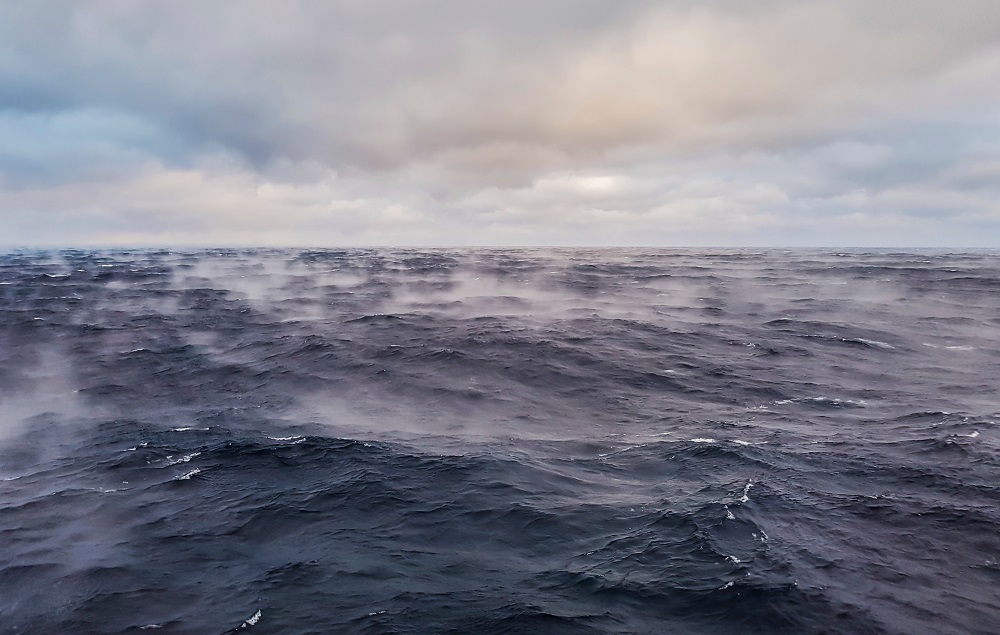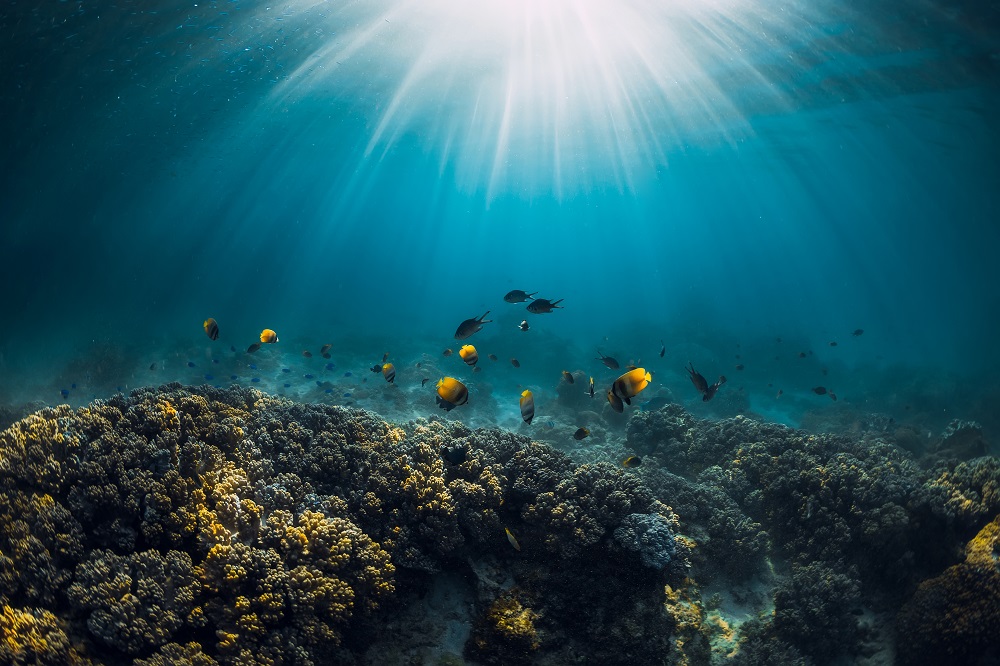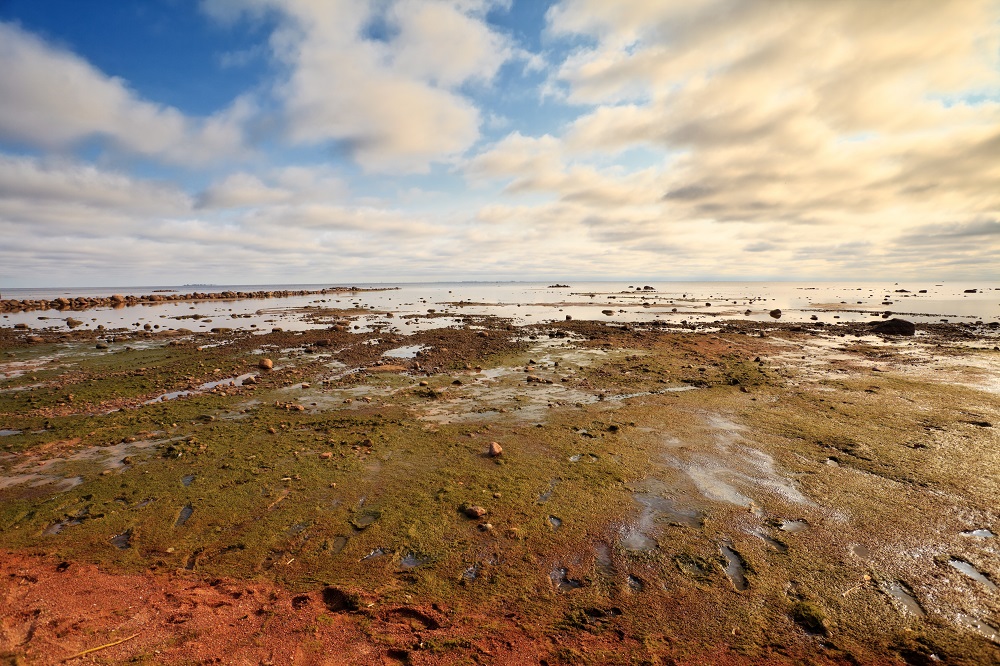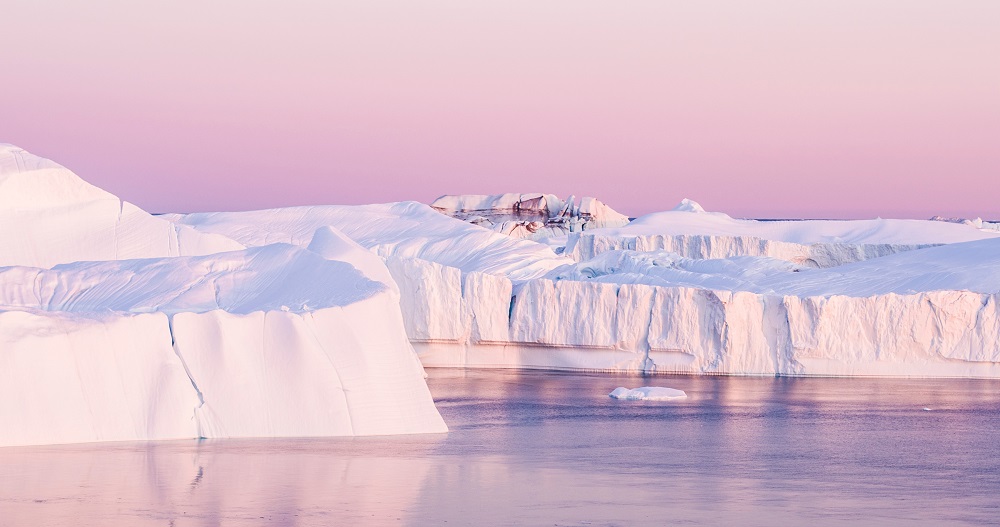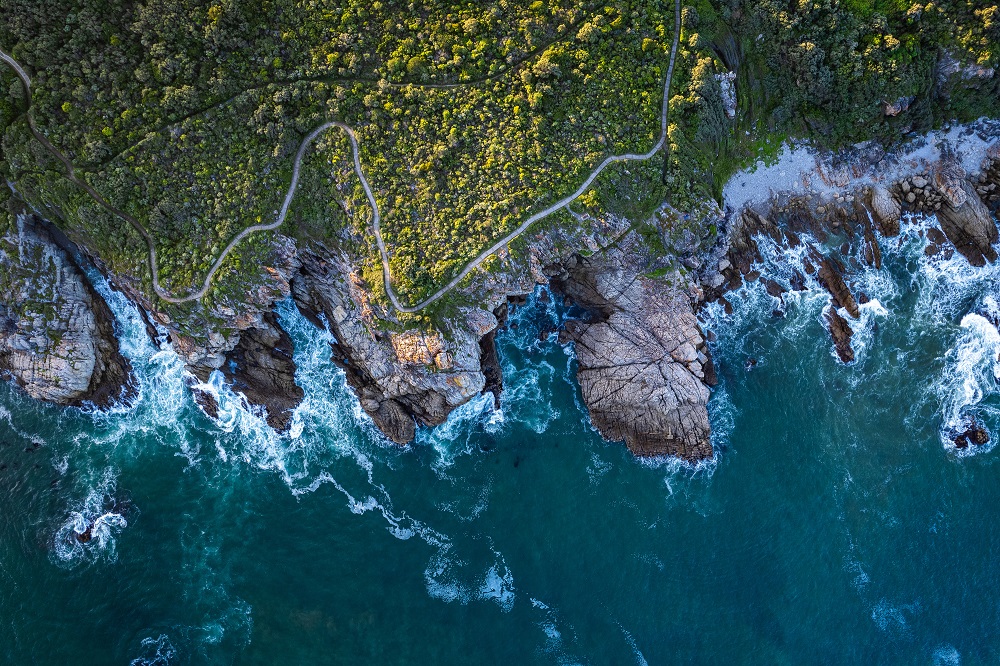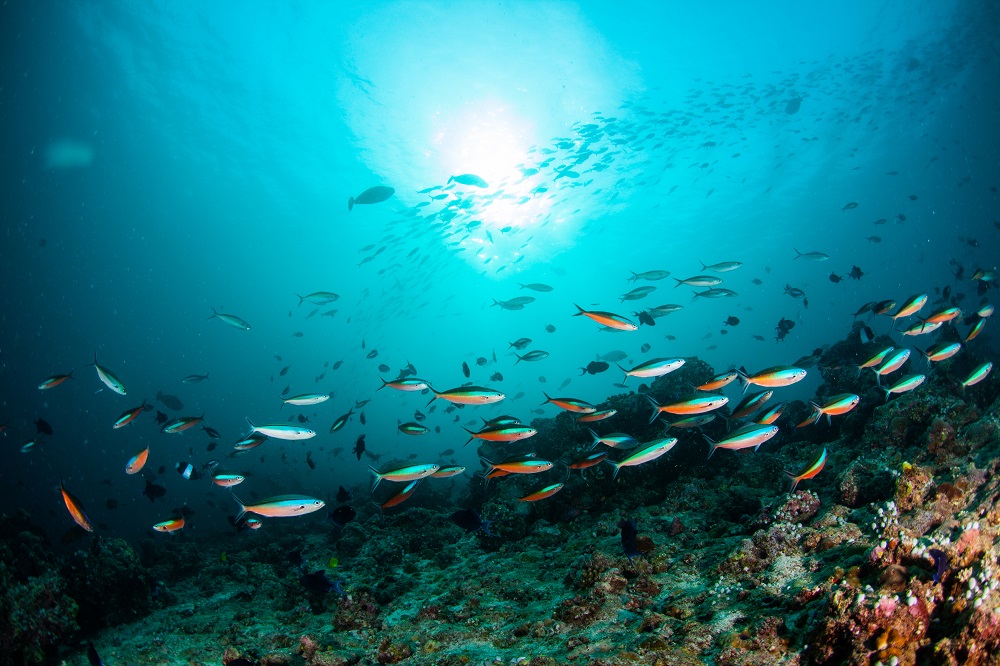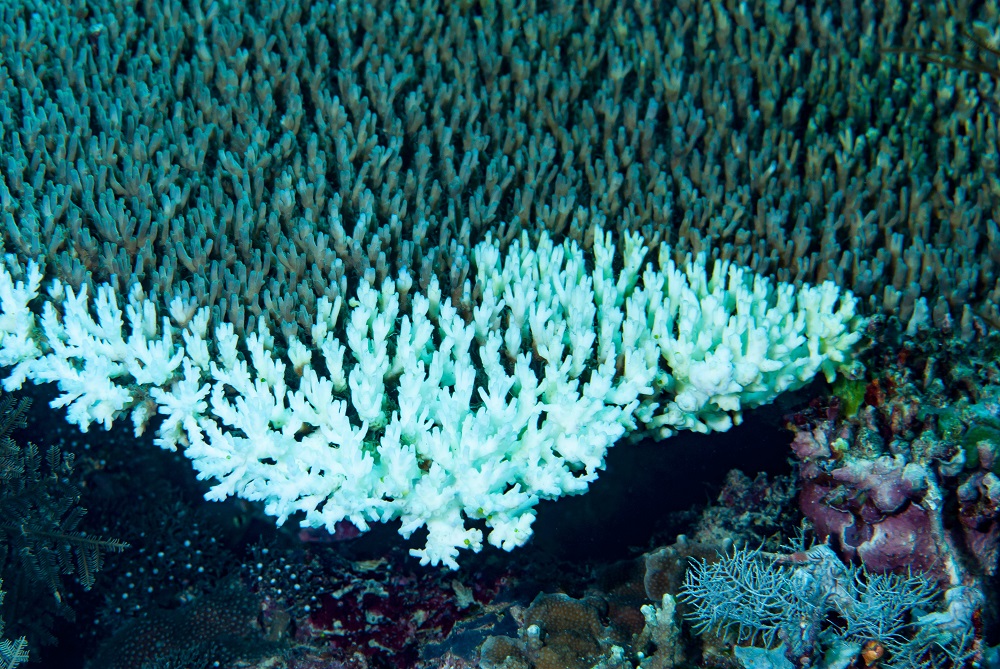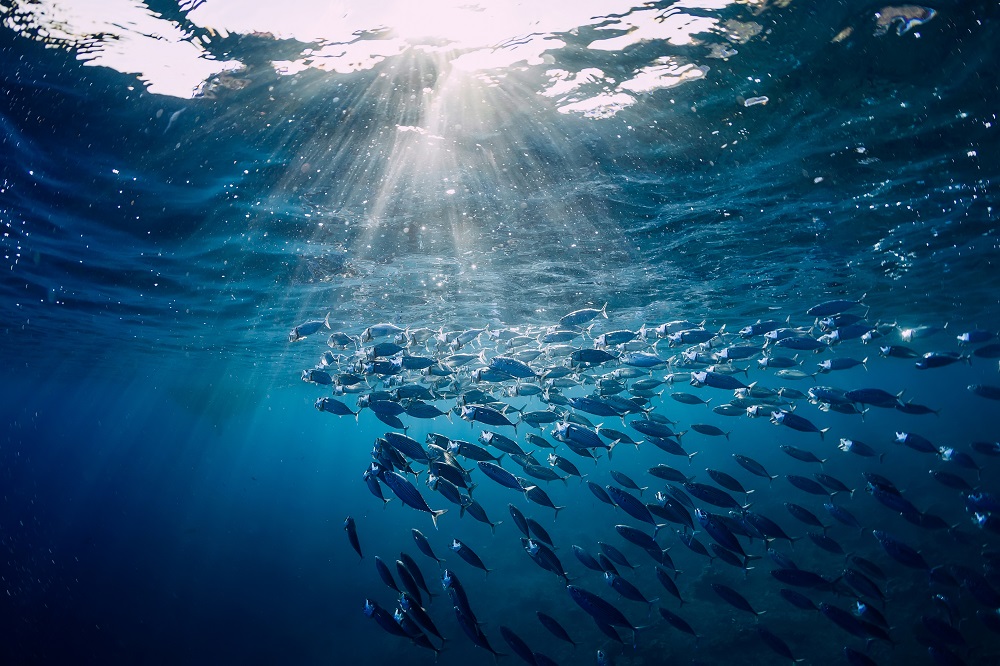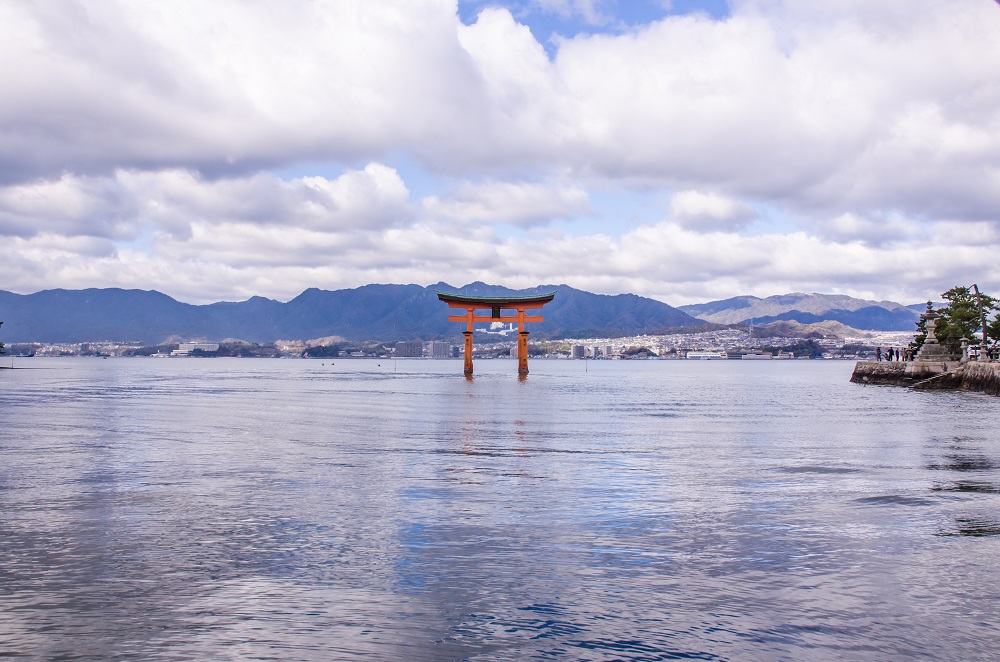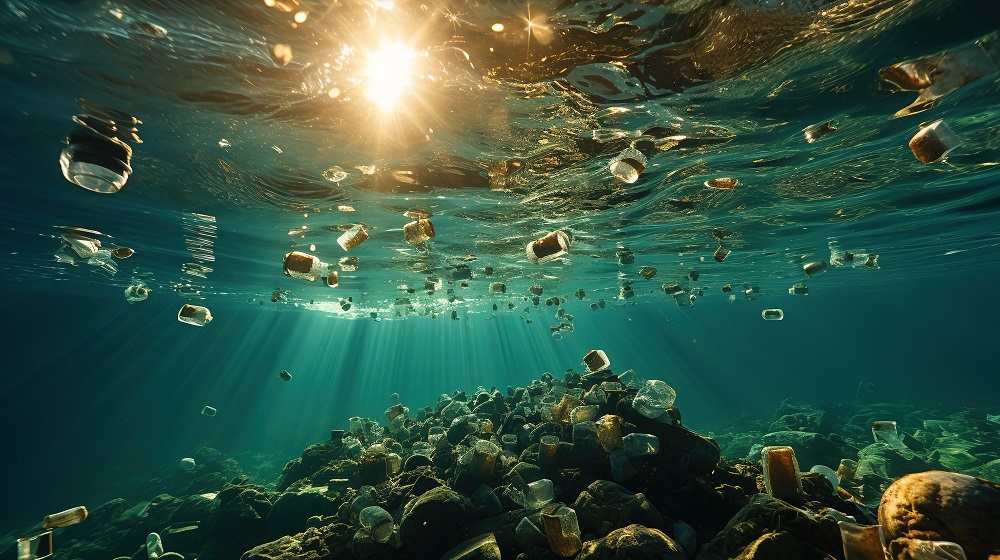Episode 20: Overview: roadmap to close the marine data pollution gap
Ocean pollution is a complex and multifaceted problem. It threatens ecosystems, human health and economies, but a lack of data about its impact means relatively little is being done to prevent and address it. That’s why Back to Blue has published A global ocean free from the harmful impacts of pollution: Roadmap for action. Here to talk about the roadmap and why it matters is Jessica Brown, Back to Blue’s head of engagement.
Follow the Back to Blue series for more podcast episodes, or visit backtoblueinitiative.com for more content.
Back to Blue is an initiative of Economist Impact and The Nippon Foundation.
Episode 19: Clean construction: Tackling marine chemical pollution through technology
“The core concept really is that everything that gets discharged to the sewer, ends up in the environment, in one way or another” (Andrew Crimston, Founder and CEO of Washbox).
Chemical pollution in the ocean tends to be much less talked about than the highly visible plastics pollution, but is as equally, if not even more harmful. Back to Blue have published a comprehensive 100-page report on the state of marine chemical pollution in “The Invisible Wave”. This episode will give a deep-dive into marine chemical pollution in the construction industry. Back to Blue’s lead editor Naka Kondo speaks to Andrew Crimston, Founder and CEO of Washbox.
Episode 18: Ensuring the role of science in the plastics treaty: insights from Global Plastics Summit
At our inaugural Global Plastics Summit held on Oct 11-12th in Bangkok, Naka Kondo, the lead editor of Back to Blue Initiative spoke to Winnie Lau, project director, preventing ocean plastics at The Pew Charitable Trusts and Margaret Spring, chief conservation and science officer and Monterey Bay Aquarium. They discussed their impressions of the summit, and shared their recommendations and aspirations for the role of science and evidence in the treaty moving forward.
Episode 17: Boosting ocean life’s resilience to human impact
A conversation with Azul Bio Synopsis: Back to Blue’s lead editor, Naka Kondo speaks to Ben Alva, the founder of Azul Bio, a startup developing microbiome-based treatments and probiotics from nature that give ocean life immunity to human impact, such as coral resilience. They are planning their first pilot in November.
Episode 16: The Great Bubble Barrier
Back to Blue’s Naka Kondo speaks to Anne Marieke Eveleens, co-founder and chief strategy officer of the Great Bubble Barrier, a Dutch social enterprise, about how air bubble technology can help clear plastics from our rivers.
Episode 15: Ocean Census: Species discovery at speed and scale
Charles Darwin once dismissed the ocean as a ‘tedious waste, a desert of water.’ Some of his contemporaries disagreed. The brave Challenger expedition of the 1870s set out to discover what lurked beneath, traversing over 100,000 kilometres and discovered 4,772 specimens, from sea snails to snake eels, discovered the deepest trench on earth, and toppled false assumptions about the lack of life under the waves. Over a century later, the Census of Marine Life picked up the baton. An eighty-country collaboration, with 2,700 scientists, the project identified another 6,000 species. Yet even these numbers are a literal drop in the ocean.
Oliver Steeds, Ocean Census director and chief executive of Nekton, a UK-based marine science and conservation institute, speaks to Naka Kondo, the lead editor of Back to Blue initiative about a new mission, the Ocean Census, launches this year with a far greater ambition: to find at least 100,000 new marine species in its first decade.
Episode 14: Sarah Doll from Safer States, on the role of government in tackling forever chemicals in drinking water
On March 14th 2023 the US Environmental Protection Agency (EPA) announced a proposal to establish legally enforceable levels for six types of ‘forever chemicals’ known as per- and polyfluoroalkyl substances (PFAS). It is expected to prevent thousands of deaths and reduce tens of thousands of serious illnesses attributable to PFAS.
The rule would require public water systems to monitor PFAS levels, notify the public of these and reduce them if exceeding the proposed standards. Developed over several years and grounded in the authority that the EPA has from US Congress, through the Safe Drinking Water Act, the goal is to issue a final PFAS drinking water standard by the end of 2023 or early 2024. This will result in a standard to which all water systems in the US must adhere.
Episode 13: Takeaways from the World Ocean Summit 2023
The World Ocean Summit is an annual global event run by The Economist Group, which brings together the wide ocean community, from business and finance to governments, national and international policy-makers, civil society and academia. This year, we celebrated the 10th anniversary of this event in Lisbon, Portugal.
In this episode, Martin Koehring, head of the World Ocean Initiative at Economist Impact, shares his firsthand experience at the summit and his key takeaways, with Naka Kondo, lead editor of Back to Blue at Economist Impact.
Episode 12: Peak plastics: bending the consumption curve
The world will continue to drown in plastic waste unless a bold and comprehensive set of policy changes is applied – this is according to Peak plastics: bending the consumption curve – a new report by Back to Blue, an initiative of Economist Impact and the Nippon Foundation. We delve into how we can decisively tackle plastic waste that is polluting our ocean and land environments with guest, Winnie Lau, project director of the Preventing Ocean Plastics project at The Pew Charitable Trusts. What will it take to decisively tackle the plastic waste crisis? Can we bend the consumption curve?
Episode 11: Ocean Acidification: A crisis in the making
The UN’s Sustainable Development Goal 14, Target 14.3, calls for minimising and addressing the impacts of ocean acidification through co-operation at all levels. There is an urgent need for scientific communities to come together with the media, education systems, policymakers and civil society to help bring more attention to the issue and to come up with technological solutions and robust legislation.
Listen to the panel discussion on ocean acidification by Steve Widdicombe, director of science, Plymouth Marine Laboratory, Peter Thomson, United Nation Secretary-general’s special envoy for the ocean, Malaika Vaz, Explorer, National Geographic, and Founder, Untamed Planet and moderated by Charles Goddard, editorial director, Economist Impact.
Episode 10: Deep sea-mining and ocean pollution (Part 2)
In part 1 of this 2-part episode, we discussed the environmental impact of deep sea mining on our oceans and marine life, and it being an issue on the COP agenda.
In the second part of this podcast, released during the World Ocean Summit Asia-Pacific, we dive deeper into the pollution risks of deep sea mining with Craig Smith, deep sea ecologist and professor emeritus at the University of Hawaii at Manoa.
Episode 9: Deep sea-mining and ocean pollution (Part 1)
In this 2-part episode on deep sea mining, we talk to Phil McCabe, an ocean campaigner, a member of the deep sea conservation coalition about the past, present and future of deep sea mining projects.
Episode 8: Back to Blue at the UN Ocean Conference
The Back to Blue team was at the UN Ocean Conference in Portugal and spoke to President Surangel Whipps Jr. of Palau about the ocean pollution issues they face, and Professor Bethanie Carney Almroth, Associate Professor of EcoToxicology, University of Gothenberg about her research into marine pollution and why she and her colleagues believe the pollution planetary boundary has been breached in the ocean.
Episode 7: The Invisible Wave: Can green and sustainable chemistry be the solution?
What is green and sustainable chemistry and can it be the solution to marine chemical pollution? What role can the private sector play? Charles Goddard, editorial director at Economist Impact discusses the responses to chemical pollution with Joel Tickner, professor of public health at the University of Massachusetts, Lowell. Professor Tickner is also the founder and executive director at the Green Chemistry and Commerce Council.
Episode 6: The Invisible Wave: how is marine chemical pollution linked to climate change?
Is chemical pollution a key anthropogenic challenge on a par with climate change and biodiversity loss? Charles Goddard, editorial director at Economist Impact speaks to Pascal Lamy, president of the Paris Peace Forum, and Naoko Ishii, director at the Centre for the Global Commons at University of Tokyo, about marine chemical pollution in a broader context.
Episode 5: Registration and regulation of chemicals
Charles Goddard, editorial director at The Economist Group, speaks to Dr Zhanyun Wang, scientist at the Swiss Federal Laboratories for Materials Science and Technology, about the hundreds of thousands of chemicals in existence, how they are managed, and the case of the EU.
Episode 4: Back to Blue – Chemical pollution
Charles Goddard, editorial director at The Economist Group, speaks to Elsie Sunderland at Harvard University and Alex Rogers at REV Ocean about the scope and scale of the problem of chemical pollution in the ocean.
Episode 3: Back to Blue – Plastics Management Index
The inaugural Plastics Management Index (PMI) was launched in early October. Naka Kondo, editor of the report, and Shreya Mukarji, manager of the index development, discuss findings of the PMI.
Episode 2: Back to Blue – an ocean health and sustainability initiative
Senior editor Naka Kondo spoke to Charles Goddard, editorial director, about the Back to Blue initiative by The Economist Group and The Nippon Foundation.
Episode 1: Turning the tide on ocean plastic
On World Oceans Day, senior editor Naka Kondo spoke to Tom Peacock-Nazil, founder of Seven Clean Seas, and his colleague Oli Kade, sustainability specialist, about tackling the problems of plastic pollution in the ocean.
Back to Blue is an initiative of Economist Impact and The Nippon Foundation
Back to Blue explores evidence-based approaches and solutions to the pressing issues faced by the ocean, to restoring ocean health and promoting sustainability. Sign up to our monthly Back to Blue newsletter to keep updated with the latest news, research and events from Back to Blue and Economist Impact.
The Economist Group is a global organisation and operates a strict privacy policy around the world.
Please see our privacy policy here.
THANK YOU
Thank you for your interest in Back to Blue, please feel free to explore our content.
CONTACT THE BACK TO BLUE TEAM
If you would like to co-design the Back to Blue roadmap or have feedback on content, events, editorial or media-related feedback, please fill out the form below. Thank you.
The Economist Group is a global organisation and operates a strict privacy policy around the world.
Please see our privacy policy here.


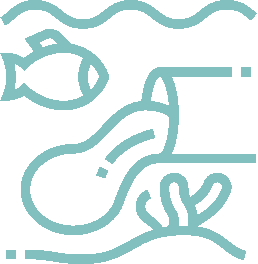

 World Ocean Summit & Expo
2025
World Ocean Summit & Expo
2025 UNOC
UNOC Sewage and wastewater pollution 101
Sewage and wastewater pollution 101 Slowing
the chemical tide: safeguarding human and ocean health amid
chemical pollution
Slowing
the chemical tide: safeguarding human and ocean health amid
chemical pollution Hazardous chemicals in plastics - the discussions at INC
Hazardous chemicals in plastics - the discussions at INC






